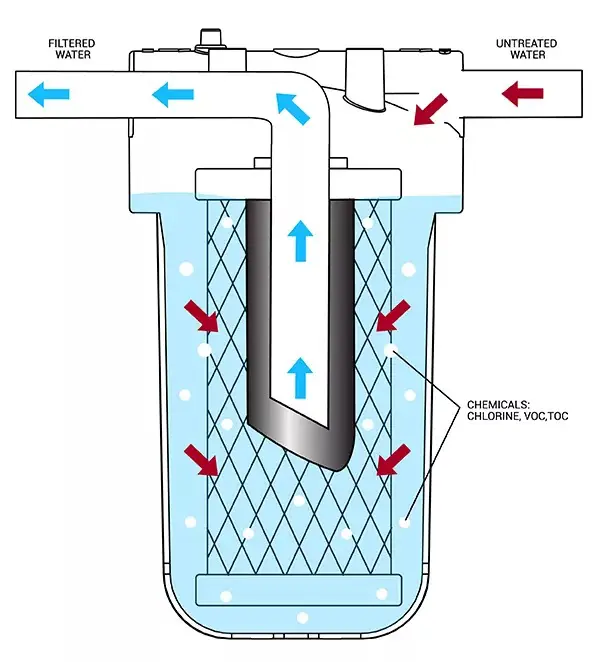If you are struggling with poor water quality in your Anoka or Bloomington home, it is time to begin to learn about the options for water filtration offered by the water quality experts at Paul Bunyan Plumbing & Drains. Our team offers in-home water testing and provides all the information needed to make a wise investment in water filtration or combination water filtration and softening that will increase the quality, safety, and taste of your home’s water. In this article we will discuss how a carbon filter works.
Carbon – The Biggest Name In Water Filtration
Many homeowners are shocked to learn that carbon is in almost every water filter on the planet. With the vast difference in pricing and uses, you would think there would be a bigger, better, or more technologically advanced solution for filtering water. However, carbon is about as good as it gets. So it is the means of purifying water from filters used when hiking, on refrigerator water dispensers, pitcher-style filters, and even whole-house water filters.
The MAGIC Of Carbon
There is not really any magic in the process of purifying water via a carbon filter. In fact, the method used is actually very simple. The carbon in the filter absorbs the impurities from the water. You might imagine it much like a sponge absorbing a liquid. However, in the case of carbon, it does not absorb all the water. Instead, it only captures the impurities and allows the water to pass through the carbon. The microscopic cracks in the carbon trap the contaminants, while the purified water continues into your faucet, glass, or other fixture or device inline after the carbon filter. In addition, carbon functions as a catalyst to change the chemical composition of some contaminants in water.
What Carbon Can Remove From Water
There are many undesirable materials that a carbon filter can remove from your drinking water. The most common contaminants you would want to eliminate from your water with a carbon filter include:
- Chlorine
- Hydrogen
- Sulfide
- Sediment
- Pesticides
- Heavy Metals
The Benefits Of A Carbon Filter
Most homeowners’ motivation for water filtration is to improve the taste of their water. A carbon filter provides fresh-tasting water while eliminating any unappetizing odor that could make it challenging to drink and enjoy. In addition, by removing contaminants, the carbon filter increases the safety of your water. So you do not need to worry about the many health issues that can arise from drinking water that contains heavy metals, chemicals, or other hazardous impurities.
An Earth-Friendly Choice
When most consumers hear the term carbon, they think of a product derived from bituminous coal or peat. However, coconut shells are the most common carbon source in water filtration. This very renewable source is highly efficient once it is baked to 1000 degrees for purification and then steamed to 1600 degrees to create activated carbon. The high-temperature steam process creates extensive cracks and pores in the carbon that will attract and trap the contaminants during the filtration process.
Call the water purity experts at Paul Bunyan Plumbing & Drains at 612-340-1444 for a price quote for carbon water filtration for your home.


